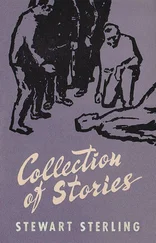There is no hard and fast line that can be drawn that says: up to here there was no love; from here on there is now love. Love is a gradual thing, it may take a moment, a month, or a year to come on, and in each two its gradations are different. With some it comes fast, with some it comes slowly. Sometimes one kindles from the other, sometimes both kindle spontaneously. And once in a tragic while one kindles only after the other has already dimmed and gone out, and has to burn forlornly alone.
By the time they left that consequential bench overlooking the tranquil little lake tucked away inside the park and started walking slowly onward in the general direction of her place, she was already well on the verge of being in love with him. And she sensed that he was too, with her. It couldn’t be mistaken. There was a certain shyness now, like a catch, she heard somewhere behind his voice every time he spoke to her. The midway stage, the falter, between the assuredness of companionability and the assuredness of openly declared love. And when their hands accidentally brushed once or twice as they walked slowly side by side, he didn’t have to turn his head to look at her, nor she to look at him, for them both to be aware of it. It was like a kiss of the hands, their first kiss. The heart knows these things. The heart is smart. Even the unpracticed heart.
They were beginning to be in love. The very air transmitted it, carried it to and fro from one to the other and back again. It had perhaps happened to them so quickly, she was ready to admit, because they both came to it fresh, wholehearted, without ever having known it before.
The June day was slowly ebbing away at last, in velvety beauty. The twin towers of the Majestic Apartments were two-toned now, coral where they faced the glowing river-sky, a sort of misty heliotrope where they faced the imminent starting point of night. The first star was already in the sky. It was like a young couple’s diamond engagement-ring. Very small, but bright and clear with promise and with hope.
New York. This was New York, on the evening of what was to have been the last day in the world — but wouldn’t be now any more. It had been a lovely day, a nice day, too nice a day to die.
They emerged at the Seventy-second Street pedestrian outlet, and sauntered north along Central Park West for a few blocks, until they’d arrived opposite the side-street her apartment was on. There they waited for a light, and crossed over to the residential side of the great artery, on which the headlights of cars in the deepening dusk were like a continuous stream of tracer-bullets aimed at anyone with temerity enough to cross their trajectory. There they stopped and stood again, a little in from the corner — in what they both hoped was to be only a very temporary parting — for she had to cross once more, to the north side of the street, to reach her door.
For a moment he didn’t seem to know what to say, and for a moment she couldn’t help him. They both turned their heads and looked up one way together. Then they both turned the opposite way and looked that way together. Then they looked at each other and they both smiled. Then the muteness broke too suddenly, and they both spoke at once.
“Well, I guess this is where—”
“Well, I suppose this is where—”
Then they laughed and there was no more constraint.
She knew he was going to ask her to dinner — the first of all the many that they’d most likely share together — and he did. First she was going to agree with ready willingness, and then she remembered the things that were waiting upstairs. Waiting just as she’d left them, from last night. Waiting dark and brooding all through the sunny, glorious day — for tonight. The pillow on the floor, the cigarette-dish. The little bowl of water with the handkerchief still soaking in it, the blindfold that was to have shut out the sight of death. She shuddered to think of them now. But more than that, she didn’t want them to still be there if she brought him up with her. She wanted to go up ahead and quickly disperse them, do away with them.
“Look, I’ll tell you what,” she said animatedly. “The next time — the very next — we’ll go to a restaurant, if you want to. But tonight let’s do this: let’s eat in. It’s a good night for cold-cuts.” She knew he wouldn’t misunderstand if she had him up so soon after meeting him; she already knew him well enough to know that. “I want you to go to Schultz’ Delicatessen, and pick up whatever appeals to you — I’ll leave that to you — and bring it up to the apartment. I’ll make the coffee.”
“Schultz’,” he said dutifully. “Where is it?”
“I don’t know,” she admitted with a chuckle and a handspread. “But I know you can find it in the directory. I can give you the number. It’s Exmount 3—8448. It’s the same as my own number, just twisted around a little. Promise me you won’t go anywhere else. Only Schultz. I have a very special reason for it. I don’t want to tell you what it is right tonight, but some day I will.”
“I promise. Schultz’ and nobody but Schultz.”
They separated. She started across the street on a long diagonal. She turned and called back: “Don’t take too long.”
“I won’t,” he answered.
Then she turned unexpectedly a second time.
“I forgot to give you the apartment-number. It’s Three—”
It was a big black shape. It was less like a car than an animal leaping at its kill. It was feline in its stealth, and lupine in its ferocity, big malevolent eyes blindingly aglow. Whether its occupants were drunk, or crazed with their own speed, or fleeing from some misdeed, it gave her no warning. It came slashing around the corner like the curved swing of a scimitar.
She was caught dead-center in front of it. Had she been a little to one side, she might have leaped back toward her companion; a little to the other, she might have leaped forward to the safety of the empty roadway alongside it. She tried to, but at the same moment it swerved that way, also trying to avoid her, and they remained fixed dead-center to one another. Then there was no more time for a second try.
She didn’t go down under it. It cast her aside in a long, low parabola. Then it slowed, then it stopped, with a crazy shriek that sounded like remorse. Too late.
She lay flat along the ground, but with her head propped up by the sharp-edged curbstone it had crashed against. The sound it had made striking was terminal. There could be no possibility of life after such an impact.
And it had been too nice a day to die.
Life Is Weird Sometimes...
Have you ever seen a woman die? I hope you never have to, never do. I mean in violence, at your own hands. It isn’t a good thing to see. When you see a man die, you see only yourself not someone apart whom you once knelt to in your heart and offered up your love to. Revered and dwelt-on in your reveries. Or if not, some other man did.
She falls from higher than a man, from over the heads of men, whether they’re lovers or husbands or brothers. And whether she was good or she was evil, whatever evil is, she falls with a flash and a fiery trace, like a disintegrating star plunging into the water. A man just falls like a clod; clay back to the clay he came from. That is why judiciaries and law-enforcers so seldom kill women by law, no matter what their crime.
And when it is done by one man alone, personally and individually acting as his own sentencer and his own executioner, as you do now, think how much more affecting and impact-bearing it is.
That face you see before you that has just finished dying will come back palely haunting into every night’s sleep for the rest of your life, no matter how much she deserved it, no matter how tough your mind. You know it will, you know. That scene you saw before you that has just ended will come back meshed into every dream you ever dream again, so that you don’t just kill her once, you kill her a thousand and one times, and she never stays quite dead. And all the brandy and all the barbiturates can’t make it go away.
Читать дальше












